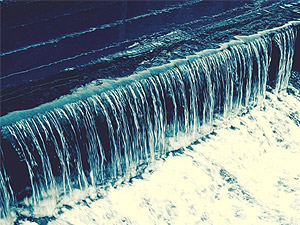Widgetized Section
Go to Admin » Appearance » Widgets » and move Gabfire Widget: Social into that MastheadOverlay zone
Colorado health officials unveil tougher regs for drinking water reuse

Drinking water standards have been updated by the Colorado Department of Public Health and Environment to improve water reuse regulation for consumption, the first regulation of its kind across the nation, the agency announced last week.
While water providers have been able to direct potable reuse on their own, the updated rule requires water providers to meet higher standards for treatment, testing and community engagement and will apply to all community water systems.
Direct potable reuse will require treatment with state-of-the-art technologies to make treated wastewater safe for human consumption.
“We are thrilled that the Water Quality Control Commission unanimously adopted DPR into the regulations,” said Nicole Rowan, Water Quality Control Division director. “This rule sets high standards for these projects and allows us to make sure that these projects are implemented safely to protect public health.”
Under this new rule, water providers must inform the public if they use direct potable reuse. Water providers across the state have shown increased interest in deploying the reuse technology to ensure accessibility to safe drinking water as Colorado sees rapid population growth and declining water resources.
The Department of Public Health and Environment held discussions with stakeholders last year on how to improve criteria and guidance for water providers, later establishing strict standards for providers to follow should they implement the new treatment method. In the fall, the Water Quality Control Commission adopted the new rule in the state’s primary drinking water regulations, setting clear standards for water providers to protect public health if the communities decide to use this treatment.
Suppliers are required to develop and document action plans for responding to water quality deviations, according to the new rule. If a problem is identified, such as chemicals detected at levels above what is expected, the action plan directs the operations staff to notify the source control staff to respond and correct the issue and, if needed, divert the water, bypass or, in extreme circumstances, shut down the facility.
Other states across the country, including Arizona, Texas, Florida and California have published their own guidelines for direct potable reuse, but Colorado is the first to implement a regulation on the practice.
Directly reusing water for drinking will not be allowed without meeting these new standards.
Editor’s note: This story first appeared on Colorado Newsline is part of States Newsroom, a network of news bureaus supported by grants and a coalition of donors as a 501c(3) public charity. Colorado Newsline maintains editorial independence. Contact Editor Quentin Young for questions: info@coloradonewsline.com. Follow Colorado Newsline on Facebook and Twitter.


